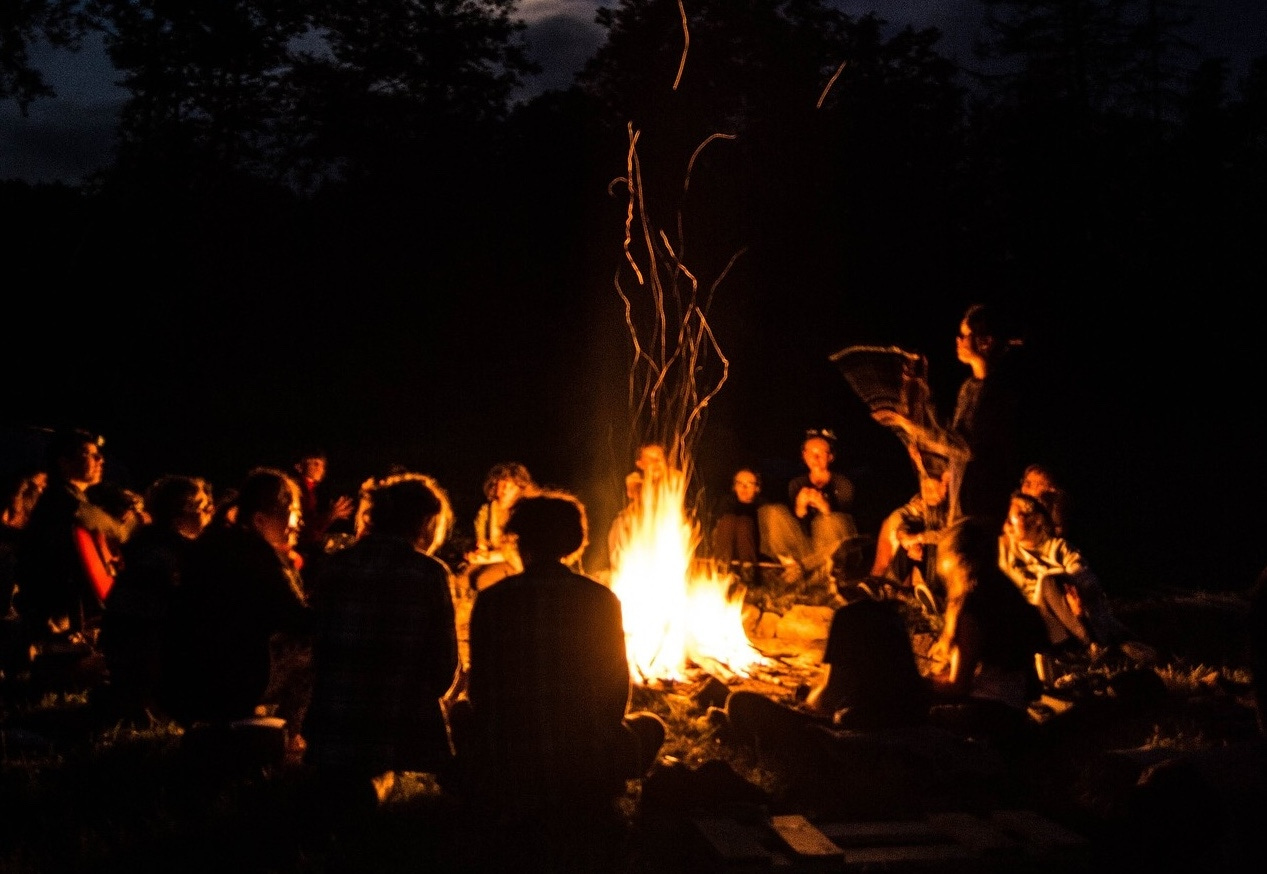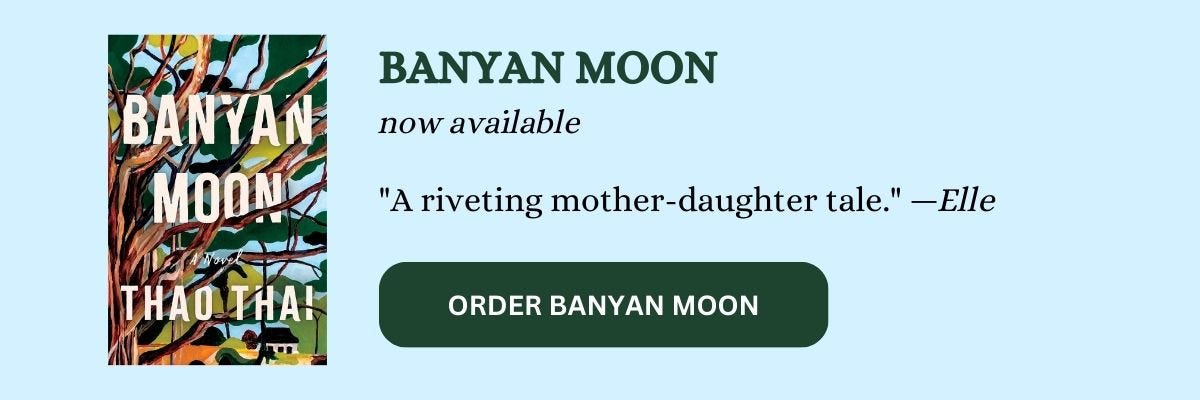
On the morning of November 6th, I jolted out of a restless sleep around four in the morning, as if tugged by an internal alarm signaling that things were about to change again. Anecdotally, I’ve heard of other women experiencing this strange and prescient awakening around that same hour on that same day. That thread of knowing, strong as ever.
While I waited for the sun to rise, I paged through the election results on my phone, knowing what I would find, yet not entirely understanding it. Eventually, my actual alarm sounded. I got dressed—all in black, which is of course very dramatic, but mostly unintentional—and silently hugged my husband and woke my daughter up with her usual good morning song. Onward, I said to myself. While walking to school, she and I practiced multiplication facts and planned an upcoming trip to a water park. I smiled at the student crossing guards who were doing silly jigs as they helped us cross. But none of it—the smiles, the jokes, the normalcy—really pierced beneath the surface. Underneath, there was just a river of numbness. A question rising through the murk: What is the next right thing?
In the past two weeks, I’ve listened to thinkers and politicians talk about the necessity of leaning on community. They say community will save us. That it will matter more in the next four years than ever. On an intellectual level, I can comprehend this. I believe it, too. But on the level of feeling, I’m still puzzling over what community actually looks like in practice. Is community the people we see every day walking through our neighborhoods, ones whose values may not align with ours? Or is community just our closest circle of friends, who may be scattered across the country and struggling in their own specific ways? What levels of proximity, both geographical and emotional, constitute the atlas of a thriving community? And, can community also be an instrument of harm?
The simplest and least satisfying answer is that there are manifold versions of community. And there are so many ways to create one. That should feel empowering. But my ever-analytical mind hooks onto a flag of doubt. At its most essential level, community depends on trust and, since the election, I’d lost a good amount of trust in the people around me. Can we—should we—build community without that grain of trust?
When my daughter was born, a friend sent us a copy of Counting on Community, a beloved board book by author and activist Innosanto Nagara. We loved the rich colors and the textured dimensionality of the illustrations. The book so quickly became a family favorite that I could read it without really reading it, sliding into that bouncy, rote rhythm of recitation that we use for well-paged children’s classics. Even now, I hear that familiar lilt of whimsy and optimism:
One stuffed piñata for every holiday. Two neighbor friends always there to play.
So inundated in diapers and cardboardy teething wafers, sunk in sleep regressions and the cadence of happy and often boring days, I didn’t stop to ask myself why we so often reached for Counting on Community. The scenes in the book were almost arcadian in nature: families surrounding heaped tables, children in the streets with soccer balls and nubs of chalk. Maybe, for me, it was a glimpse of a future I assumed would be waiting for us. Now, looking at those old pages, I feel the sting of loneliness. Had we been promised this idyll? Where did I begin to stray from the path of community?
Then I realized: for some, this hopeful little book might reflect a version of reality. For me, it’s become a sidelong glance into a pasture that sometimes feels too foolish to hope for.
I didn’t grow up within the coils of a tight-knit community. Any community, really. Contained by their various struggles, most of my family members did not often seek the companionship of others. They were stubbornly insulated unto themselves, a unit that held together with crushing strain, until it couldn’t any longer. So when somebody tells me to lean on community, that old, individualistic and cynical part of me rebels. You can’t count on anyone but yourself. If you don’t save you, no one will.
But aren’t beliefs like that, after all, what got us into this mess?
If I’m honest, I’ll say that community is probably too big a word for me just now. But another word keeps echoing in my mind, one that feels truer and more attainable. Rootedness. I want to root into the life I’m making. I’m called to go deeper, rather than wider, into my relationships. And I want to find the patience to understand that the tender shoots that arise from the roots, the ones that strain toward the sun, will be transformation enough.
Neither my husband nor I are religious, but we’ve mutually admired the community founded around synagogues, churches, and temples. We longed to find a secular alternative to church that fits our family in this stage of life. Now, perhaps, it’s becoming more clear that we must shape this for ourselves.
In an episode of Erin and Sarah Foster’s podcast, the sisters speak with friendship expert Anna Goldfarb, who suggests that we are asking the wrong questions when it comes to relationships. We wonder why the other party isn’t doing more for us, when the question we should really be asking is: What are we doing for our friends? This service-oriented perspective isn’t altogether comfortable in a society where we consider time a dwindling commodity, but it’s an interesting one to try on.
When I think about who I want to be in community with, I’ve also begun asking myself whether they would consider me part of their community. Am I a person they can trust with their joys and pains, their trembling cores of humanity? Is my language one of care and commitment? These concerns, at least, feel as if they’re within my control. A small prod of agency, again at my disposal. Intentionality, a more immediate tool to wield.
Maybe trust isn’t the first step to community after all. Maybe the first step looks a little more like faith. For me, it’s not a spiritual faith. It certainly isn’t a faith in our politicians or our systems of justice. The faith I’m reaching for is a smaller sort, yet somehow more enormous, a flawed and human conviction that sputters like a flame, then revives in great and surprising leaps.
To start, then: a community of one, a flicker of faith, a root that nudges deep into the soil, like a promise settling in. Not everything, no; but one next, right thing.



